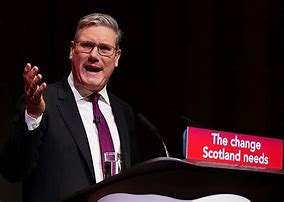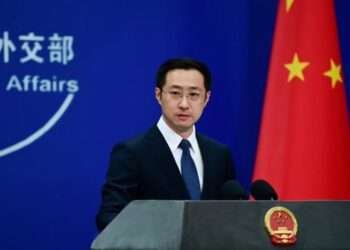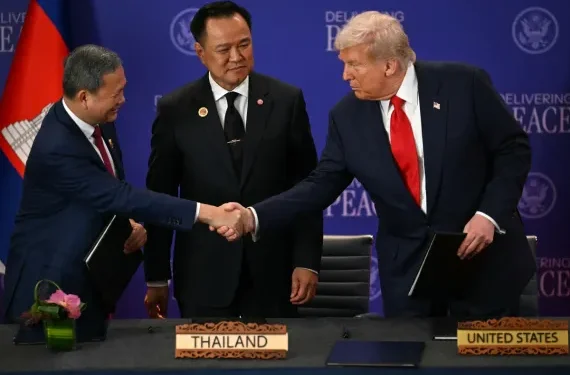Sir Keir Starmer, the leader of the Labour Party, has defended his decision to travel by private jet to a clean energy jobs rally in Scotland, emphasizing the necessity of quick transportation and the party’s practice of offsetting carbon emissions for air travel.
This move has sparked criticism, especially considering Labour’s previous criticisms of Prime Minister Rishi Sunak for using private jets and helicopters, labeling him as “out of touch.”
Starmer’s defense highlighted the urgency of his schedule and the efficiency required to cover large distances across the UK, especially during a tight election campaign.
Starmer said, “We did use a private jet because we did need to get very quickly to Scotland from Wales yesterday and it was the most efficient form of transport in the middle of a very busy general election campaign.”
“We offset the carbon, we always do when we use transport in the air, but it is a practical situation because I need to get across the country to speak to as many people as possible, and when time is tight we need to do it as efficiently as possible.”
Keir Starmer, Leader Labour Party
Despite the backlash, Starmer reiterated Labour’s commitment to transitioning to clean energy and creating jobs in the sector through initiatives like the proposed Great British Energy company.
Starmer said, “I’ve been very clear that we’re not turning off the tap. Oil and gas will be part of the mix for many years, we’re not revoking any licenses but transition is coming.”
He assured that oil and gas would remain part of the energy mix for the foreseeable future, aiming to avoid the mistakes of abrupt transitions seen in the past, such as the closure of coal mines under Margaret Thatcher’s administration.
Edwrad Miliband, British Politician, said the plan meant “Scotland will be the clean energy powerhouse of Great Britain”, creating “tens of thousands of jobs with strong trade unions and reindustrializing our country.”
Starmer’s comments were aimed at addressing concerns about job losses in the fossil fuel industry and the potential impact on local economies.
Starmer’s Choice Of Transportation Underscores Complexities Of Political Messages

The controversy surrounding Starmer’s choice of transportation underscores the complexities of political messaging and the challenges of balancing environmental responsibility with practical considerations.
While Labour’s focus on clean energy and job creation in the sector is well-received, the optics of traveling by private jet contrast sharply with the party’s rhetoric and previous criticisms of similar behavior by other politicians.
However, this decision has been criticized for its inconsistency with Labour’s rhetoric and previous actions.
Labour’s Shadow Chancellor, Rachel Reeves, even pledged to curb the use of private jets by ministers if Labour forms the next government.
This promise was made in response to revelations about Sunak’s frequent use of RAF aircraft for domestic flights, which was seen as excessive and elitist.
Critics argue that Starmer’s decision represents a case of “hypocrisy,” given the party’s previous criticisms of private travel and its promises to reduce such practices.
This incident serves as a reminder of the complexities of political communication and the difficulties in reconciling practical necessities, such as efficient travel during a high-stakes election campaign, with the party’s stated values and commitments.
It also highlights the public’s keen eye for inconsistencies in politicians’ actions and words, which can significantly impact perceptions of credibility and authenticity.
READ ALSO: Afronitaaa and Abigail Advance To the 2024 BGT Finals























